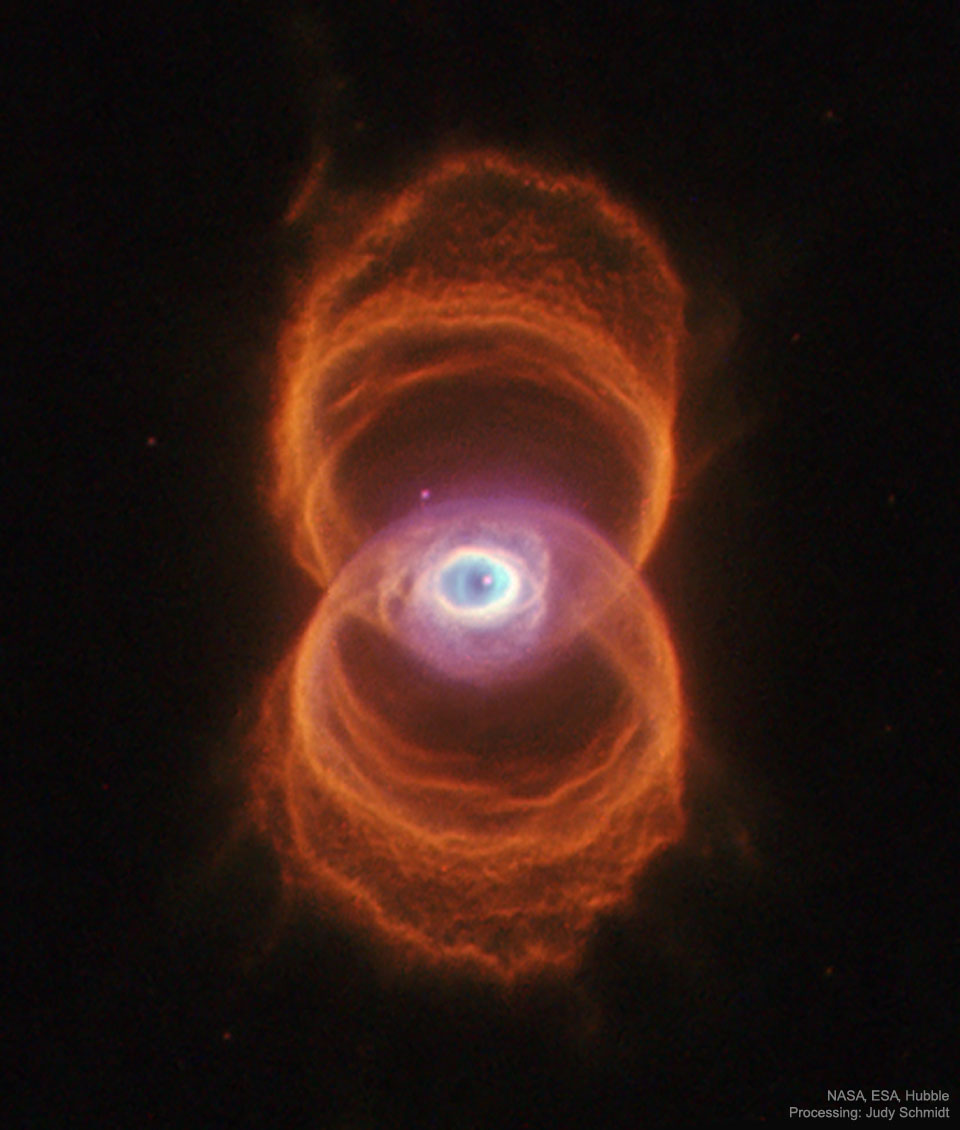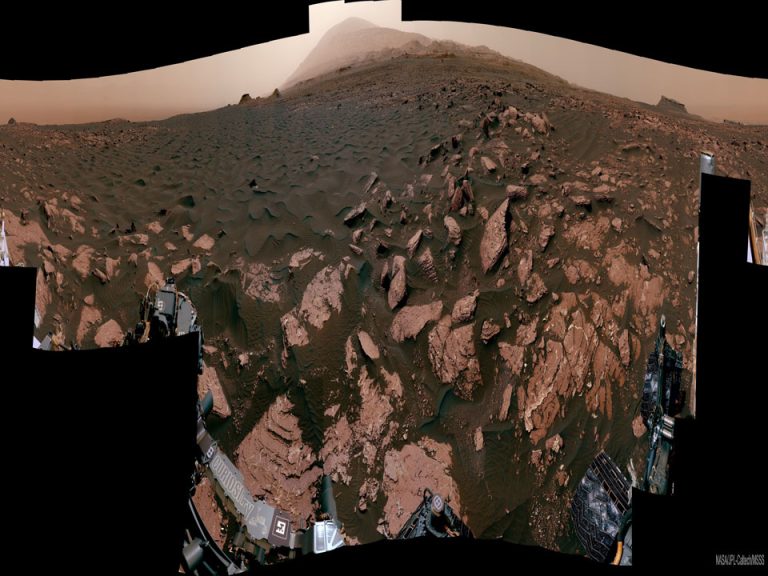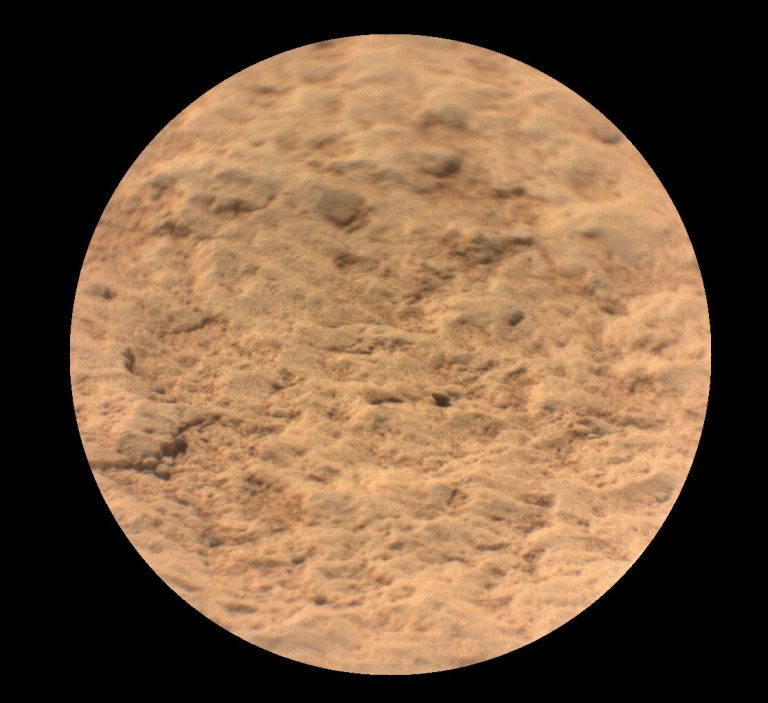2019 September 29
MyCn 18: The Engraved Hourglass Planetary Nebula
Image Credit: NASA, ESA, Hubble; Processing & License: Judy Schmidt
Explanation: Do you see the hourglass shape — or does it see you? If you can picture it, the rings of MyCn 18 trace the outline of an hourglass — although one with an unusual eye in its center. Either way, the sands of time are running out for the central star of this hourglass-shaped planetary nebula. With its nuclear fuel exhausted, this brief, spectacular, closing phase of a Sun-like star’s life occurs as its outer layers are ejected – its core becoming a cooling, fading white dwarf. In 1995, astronomers used the Hubble Space Telescope (HST) to make a series of images of planetary nebulae, including the one featured here. Pictured, delicate rings of colorful glowing gas (nitrogen-red, hydrogen-green, and oxygen-blue) outline the tenuous walls of the hourglass. The unprecedented sharpness of the Hubble images has revealed surprising details of the nebula ejection process that are helping to resolve the outstanding mysteries of the complex shapes and symmetries of planetary nebulas like MyCn 18.
MyCn 18;沙漏星云
影像提供: NASA, ESA, Hubble; 影像处理与授权: Judy Schmidt
说明: 你看见沙漏状的天体?还是你觉得它盯着你瞧?如你想像力够用的话,MyCn 18的众多环状结构叠成一个沙漏,不过沙漏孔形似一只眼睛。不论如何,位在这个沙漏形行星状星云的中心恒星,来日已然不多了。当类太阳恒星耗尽核燃料之后,它会抛出外层的气壳,经历这种短暂且美丽的恒星生命终结阶段,而核心则会成为一颗逐渐冷却变暗的白矮星。在1995年,天文学家用哈伯太空望远镜,针对行星状星云拍摄了一系列影像,包括成为上面这幅影像主题的星云。在影像中,可以看见多重的环状辉光 (氮为红、氢绿和氧蓝)描绘出沙漏隐约的管面。这些无比清晰的哈伯望远镜影像,清楚呈现了云气抛射过程的细节,有助于解开像MyCn 18这些行星状星云的复杂形状和对称性等神秘待解的难题。







